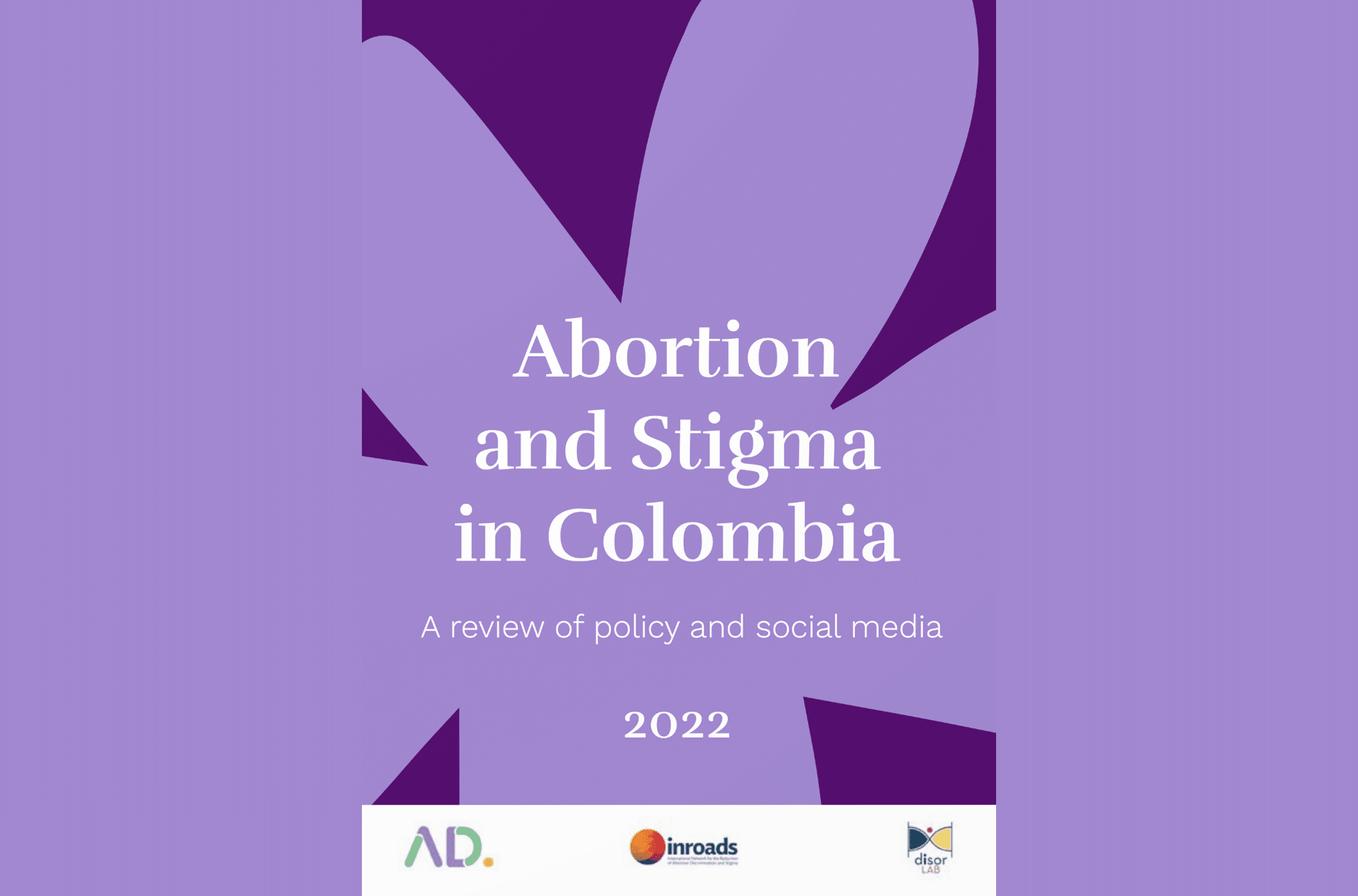
by Lina Lopez, Laura Daniela Gomez, Oscar Javier Maldonado
AbortionData.org / Laboratory in Digital Methods at University del Rosario
Bogota, Colombia
Recent reports and statistics produced by NGOs have drawn attention to the fact that abortion is still considered a criminal act. This criminalisation has a negative impact on the sexual and reproductive health and rights of individuals (La Mesa por la Salud y la Vida de las Mujeres, 2021). This perspective is part of a broader discussion on reproductive justice and abortion. There is therefore a potential shift in the way abortion is presented, from a public health issue to a reproductive justice issue.
The report on the criminalisation of abortion in Colombia by La Mesa por la Salud y la Vida de las Mujeres (2021) addresses that there are a significant number of underage women who are criminalised for having an abortion, more than the number of older women who are criminalised (Jaramillo et al., 2021). The report mentions that a correlation has been found between domestic violence, poverty and the number of women reported for having ‘illegal’ abortions. However, research on abortion and criminalisation rarely takes domestic violence and poverty into account. As a result of these findings, the researchers were able to create new categories of analysis, which in turn led to revised ways of thinking about abortion. A comparison was also made between the way in which non-consensual and consensual abortion cases are resolved. It shows that non-consensual abortions are rarely monitored by the justice system, while women who decide to have an abortion are criminalised (Jaramillo et al., 2021). The study also highlights the situation of women involved in the Colombian armed conflict (members of paramilitary groups) who have been subjected to forced abortions, a plight that has not been recognised by the government…
This study used a cross-methodological approach to analyse abortion stigma in Colombia. In this way, we combined a structural analysis of scientific knowledge with the analysis of quantitative information available on abortion. By including direct research into the community process, represented by the interactions and exchanges between groups and individuals on Twitter, we were able to identify different levels of community stigma around abortion.
The results of the analysis led to the creation of four categories that can serve as variables to measure abortion stigma in Colombia: criminalisation, autonomy, womanhood and maternity, and social identities. Moreover, most of the expressions of abortion stigma in Colombia revolve around two central themes: traditional roles of femininity and the criminalisation of abortion. Although the recent decriminalisation of abortion has improved the legal framework in the country, barriers for those seeking abortion remain (La Mesa por La Vida y la Salud de las Mujeres, 2022). This not only demonstrates the importance of this study, but also the long road to social justice that still lies ahead. For this reason, we propose to continue the research on this issue in two ways: applying the proposed survey to opinion leaders and in a national survey….
We believe that this methodology can be replicated in countries where abortion is legal, to determine the level of stigma on a broader and multinational scale, allowing for a more detailed analysis of how stigma affects access to services and the experience of abortion.
FULL REPORT: Abortion and Stigma in Colombia, October 2022



